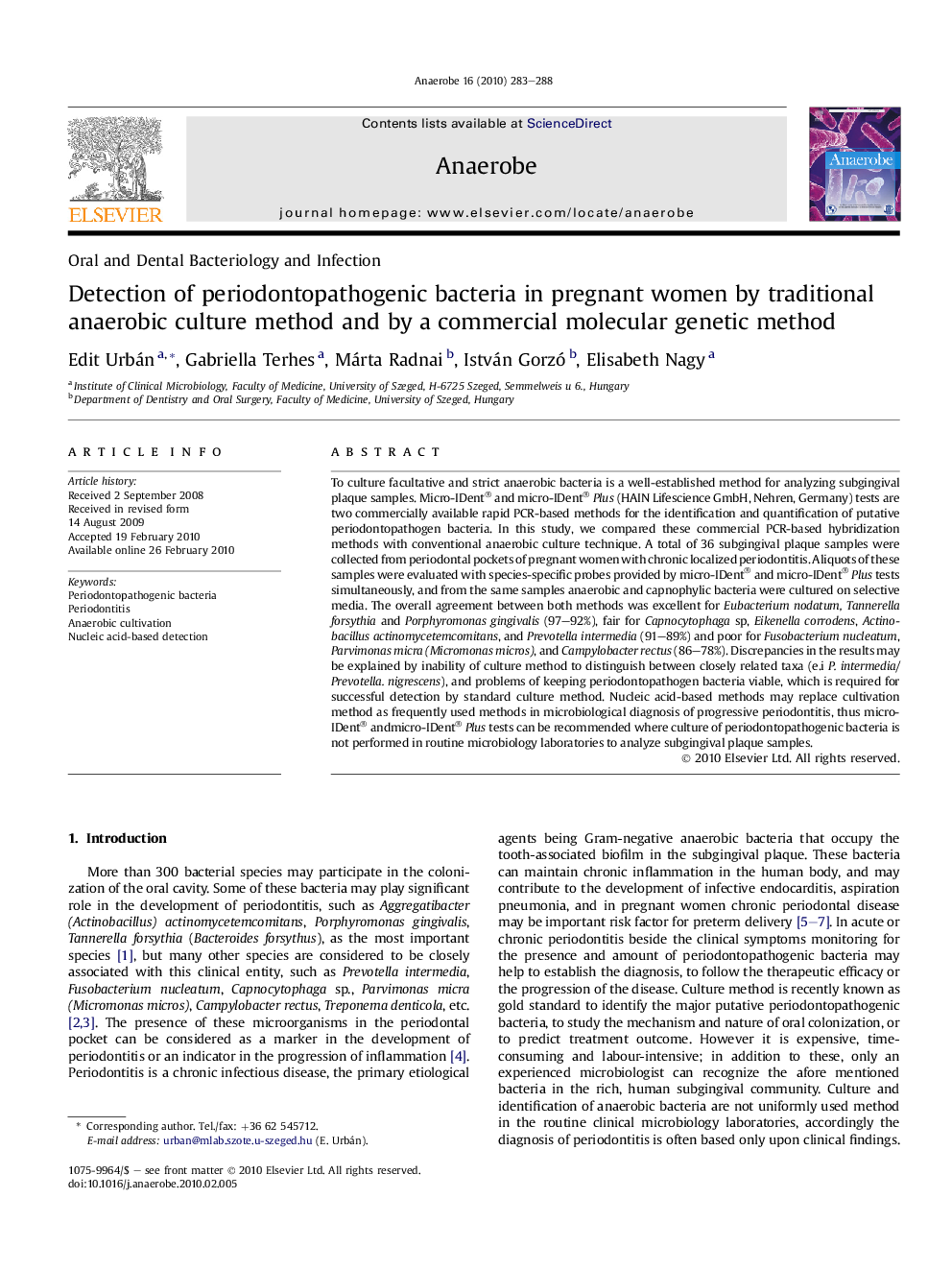| Article ID | Journal | Published Year | Pages | File Type |
|---|---|---|---|---|
| 3395744 | Anaerobe | 2010 | 6 Pages |
To culture facultative and strict anaerobic bacteria is a well-established method for analyzing subgingival plaque samples. Micro-IDent® and micro-IDent®Plus (HAIN Lifescience GmbH, Nehren, Germany) tests are two commercially available rapid PCR-based methods for the identification and quantification of putative periodontopathogen bacteria. In this study, we compared these commercial PCR-based hybridization methods with conventional anaerobic culture technique. A total of 36 subgingival plaque samples were collected from periodontal pockets of pregnant women with chronic localized periodontitis. Aliquots of these samples were evaluated with species-specific probes provided by micro-IDent® and micro-IDent®Plus tests simultaneously, and from the same samples anaerobic and capnophylic bacteria were cultured on selective media. The overall agreement between both methods was excellent for Eubacterium nodatum, Tannerella forsythia and Porphyromonas gingivalis (97–92%), fair for Capnocytophaga sp, Eikenella corrodens, Actinobacillus actinomycetemcomitans, and Prevotella intermedia (91–89%) and poor for Fusobacterium nucleatum, Parvimonas micra (Micromonas micros), and Campylobacter rectus (86–78%). Discrepancies in the results may be explained by inability of culture method to distinguish between closely related taxa (e.i P. intermedia/Prevotella. nigrescens), and problems of keeping periodontopathogen bacteria viable, which is required for successful detection by standard culture method. Nucleic acid-based methods may replace cultivation method as frequently used methods in microbiological diagnosis of progressive periodontitis, thus micro-IDent® andmicro-IDent®Plus tests can be recommended where culture of periodontopathogenic bacteria is not performed in routine microbiology laboratories to analyze subgingival plaque samples.
